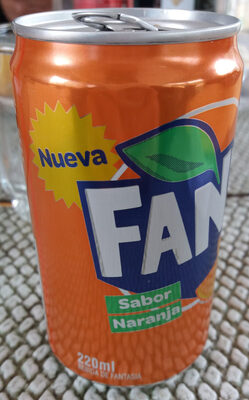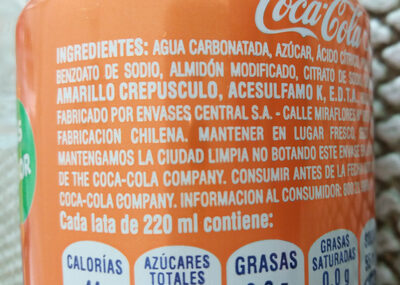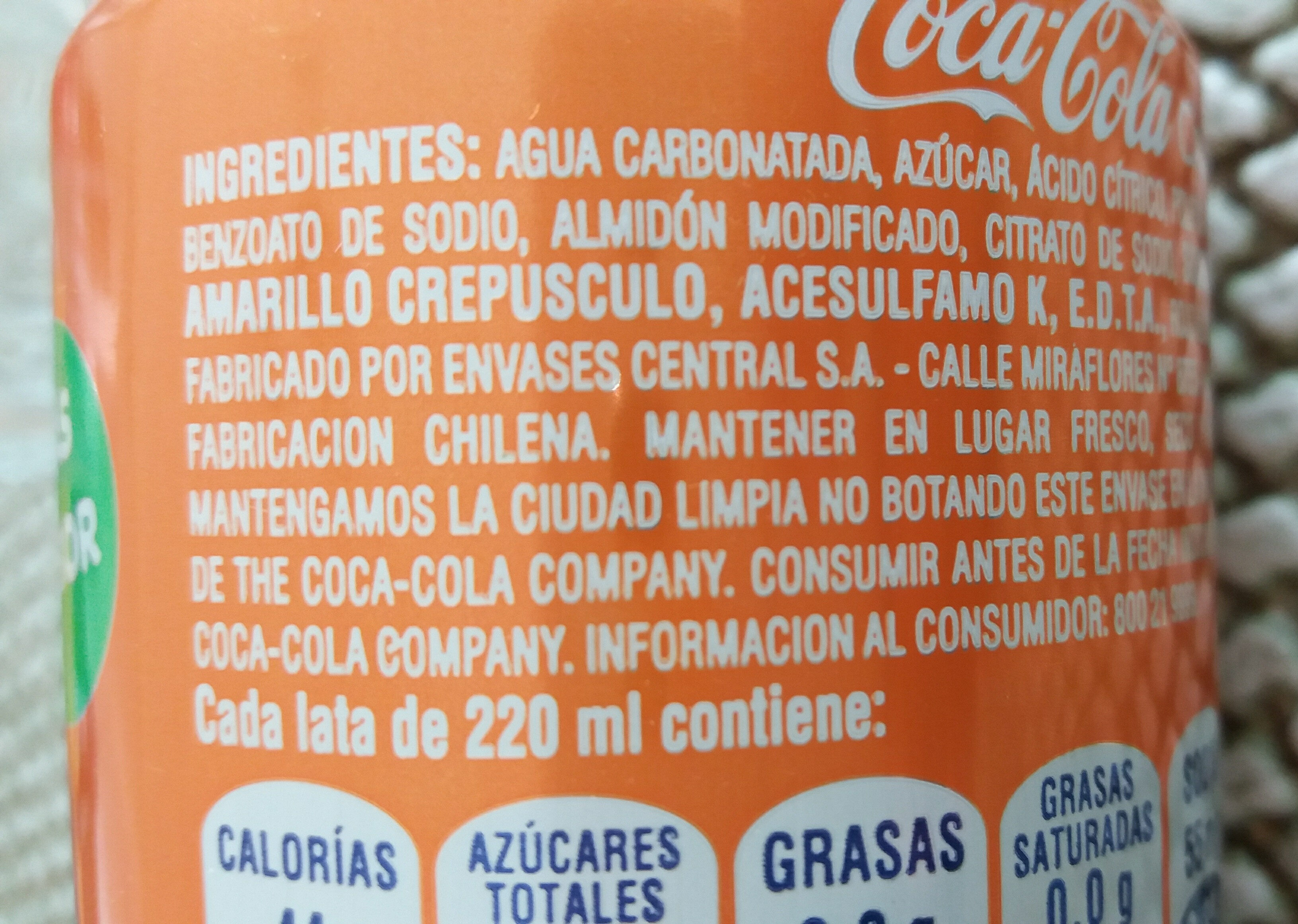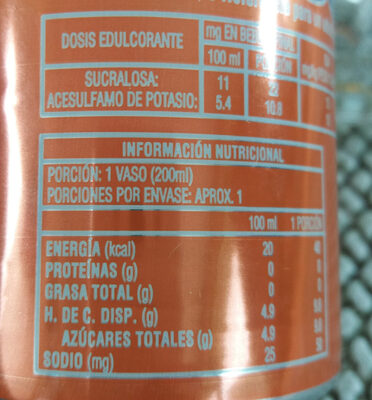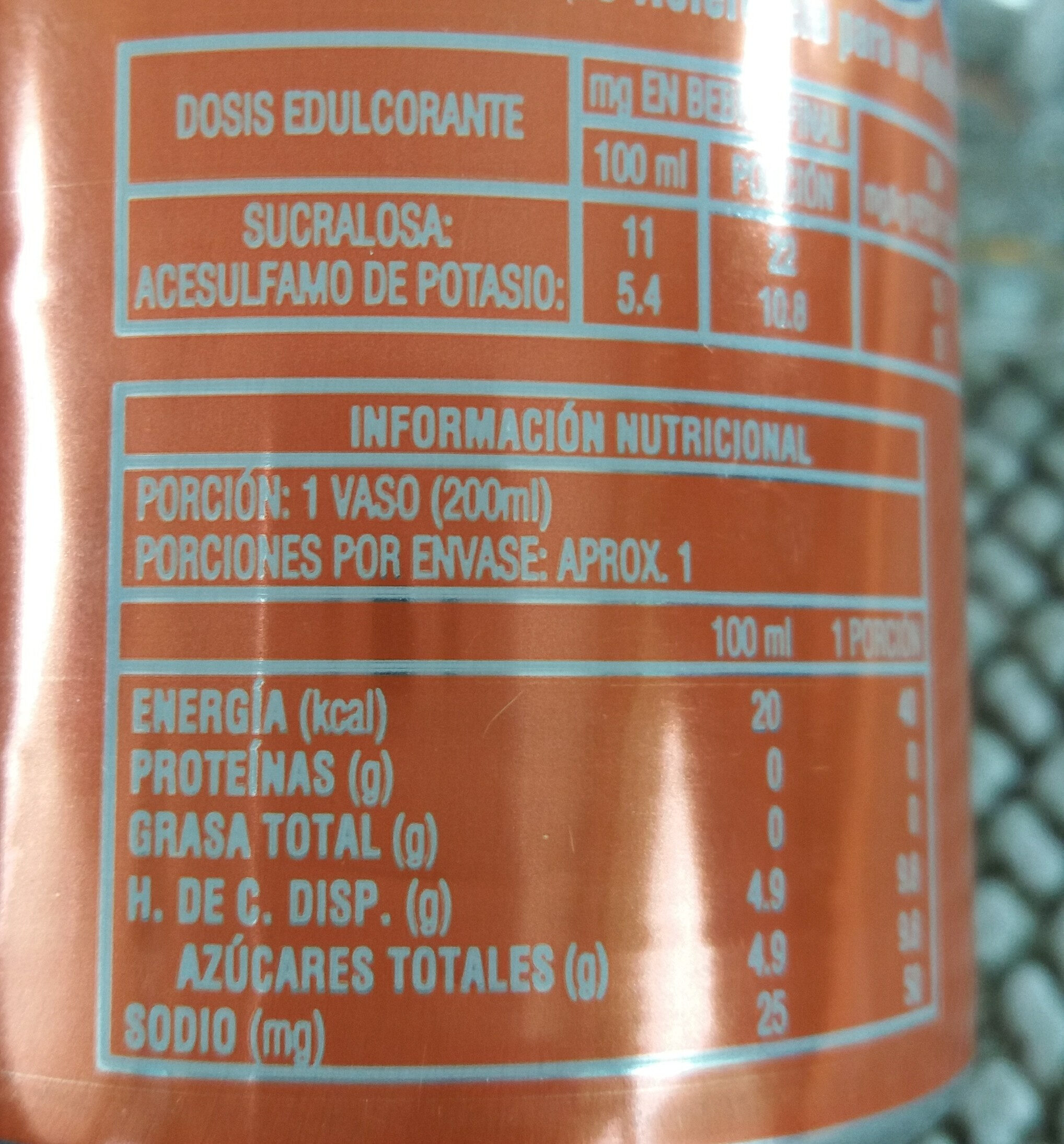Fanta - CocaCola - 220 ml
This product page is not complete. You can help to complete it by editing it and adding more data from the photos we have, or by taking more photos using the app for Android or iPhone/iPad. Thank you!
×
Barcode: 7801610220061 (EAN / EAN-13)
Quantity: 220 ml
Packaging: Can
Brands: CocaCola
Categories: Beverages, Carbonated drinks, Artificially sweetened beverages, Sodas, Sweetened beverages
Manufacturing or processing places: Chile
Stores: Jumbo
Countries where sold: Chile
Matching with your preferences
Environment
Packaging
Transportation
Report a problem
Data sources
Product added on by figonzal
Last edit of product page on by packbot.
Product page also edited by openfoodfacts-contributors.
If the data is incomplete or incorrect, you can complete or correct it by editing this page.
